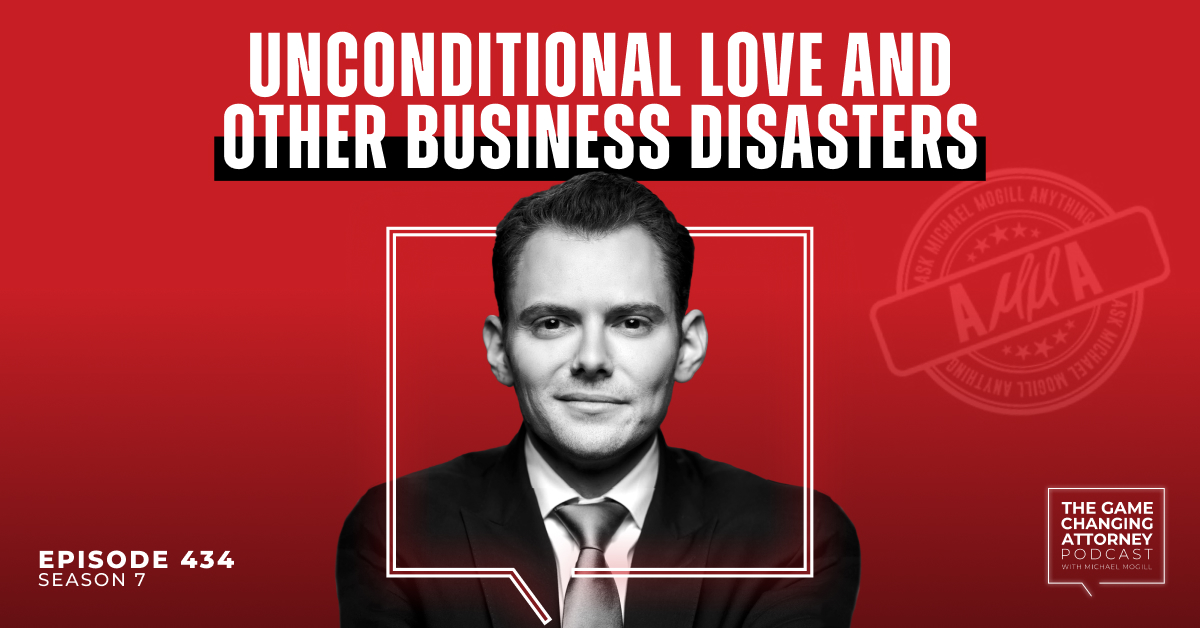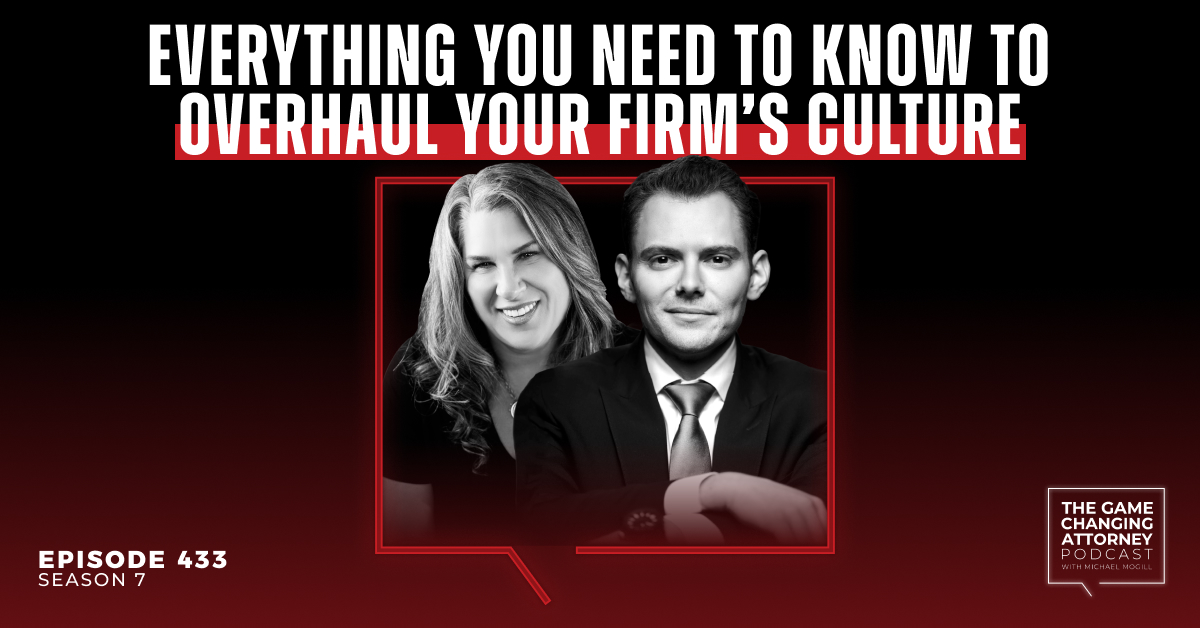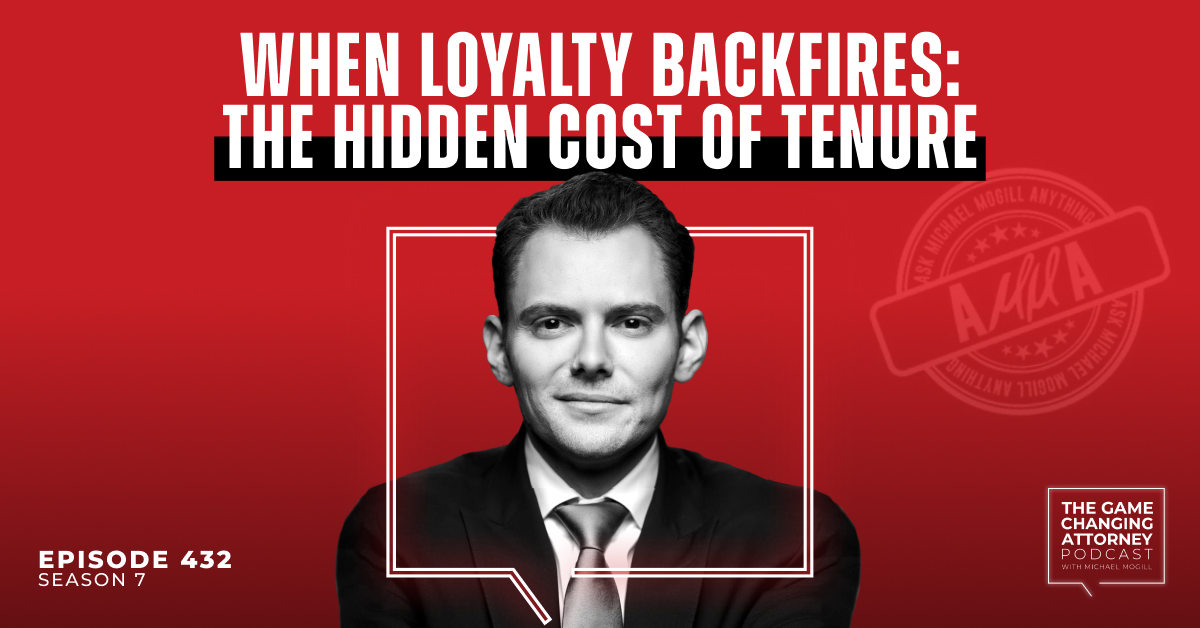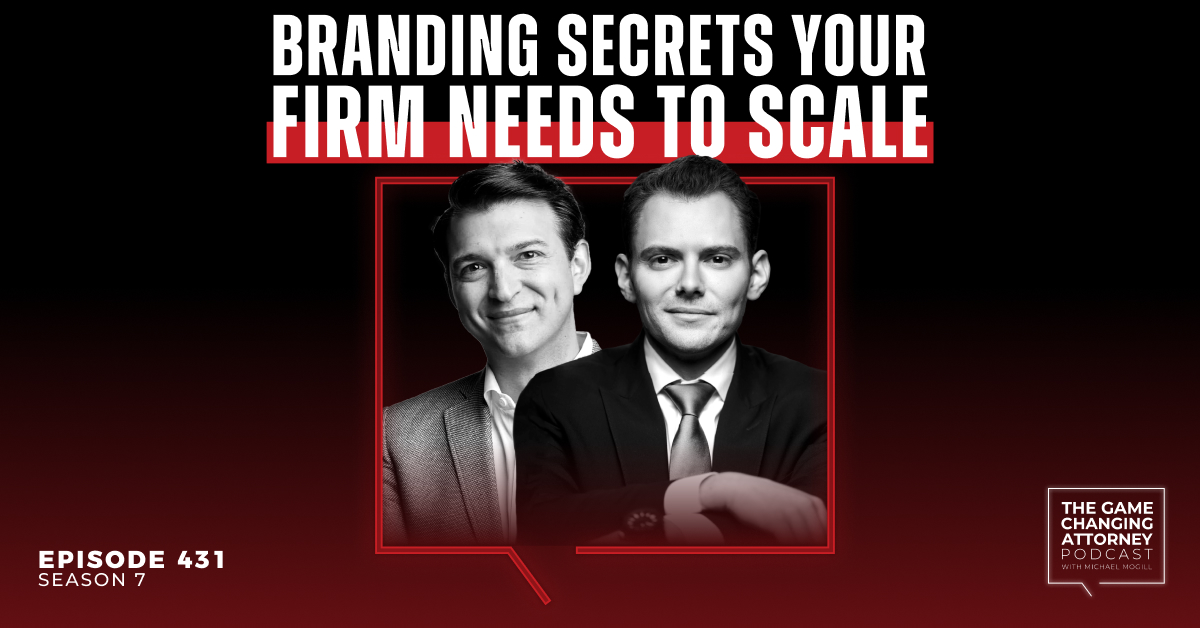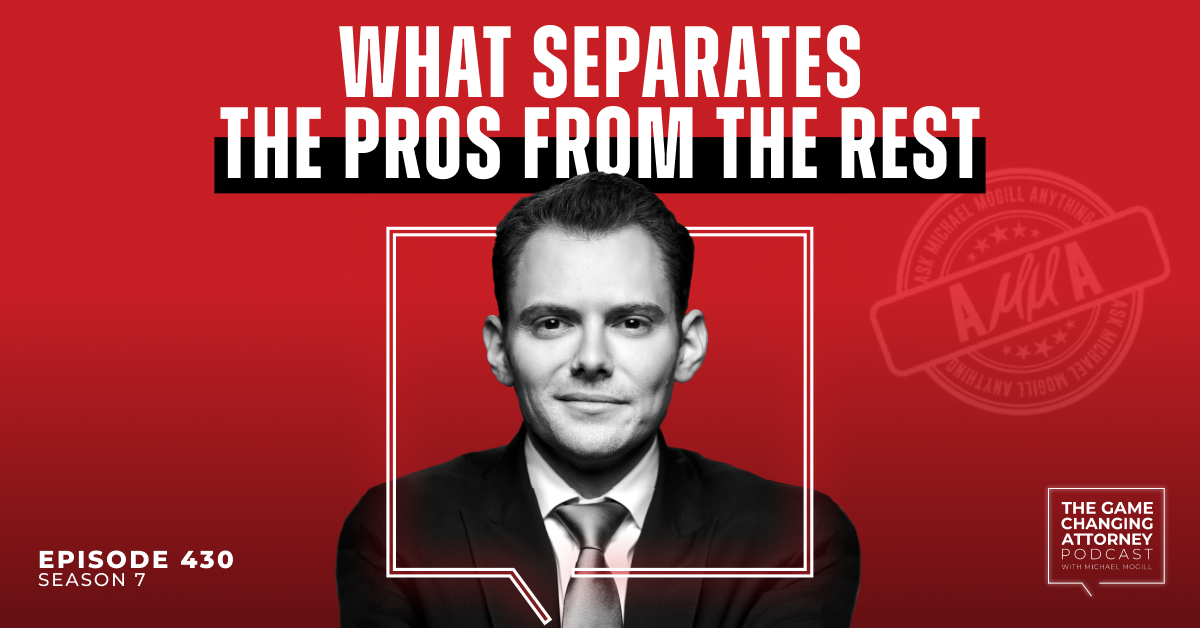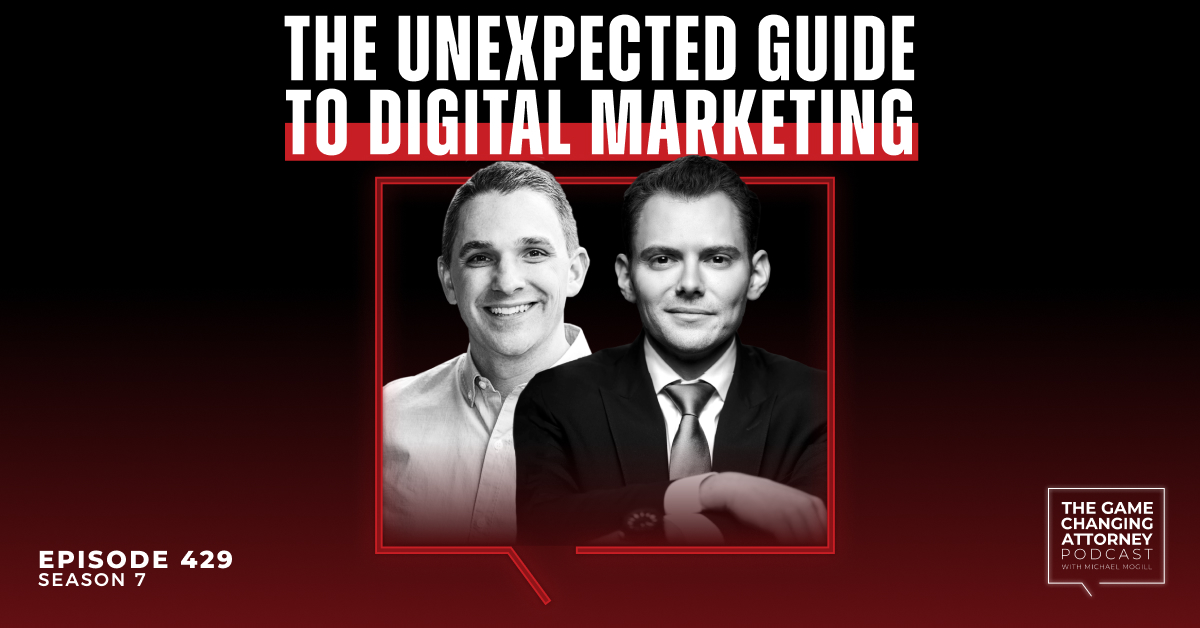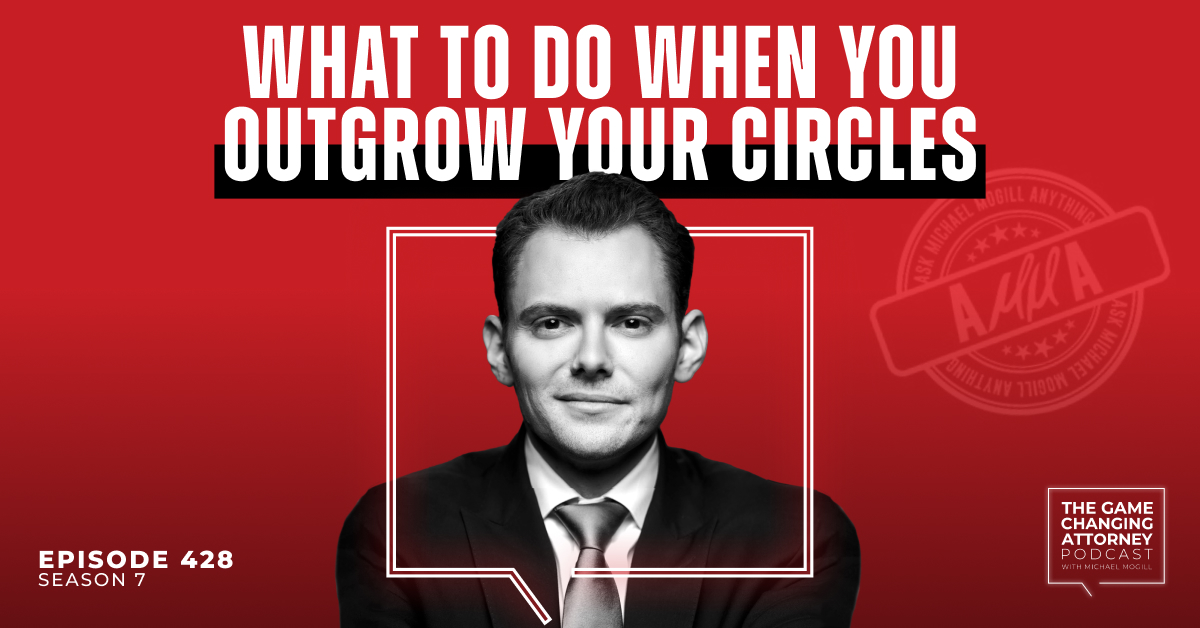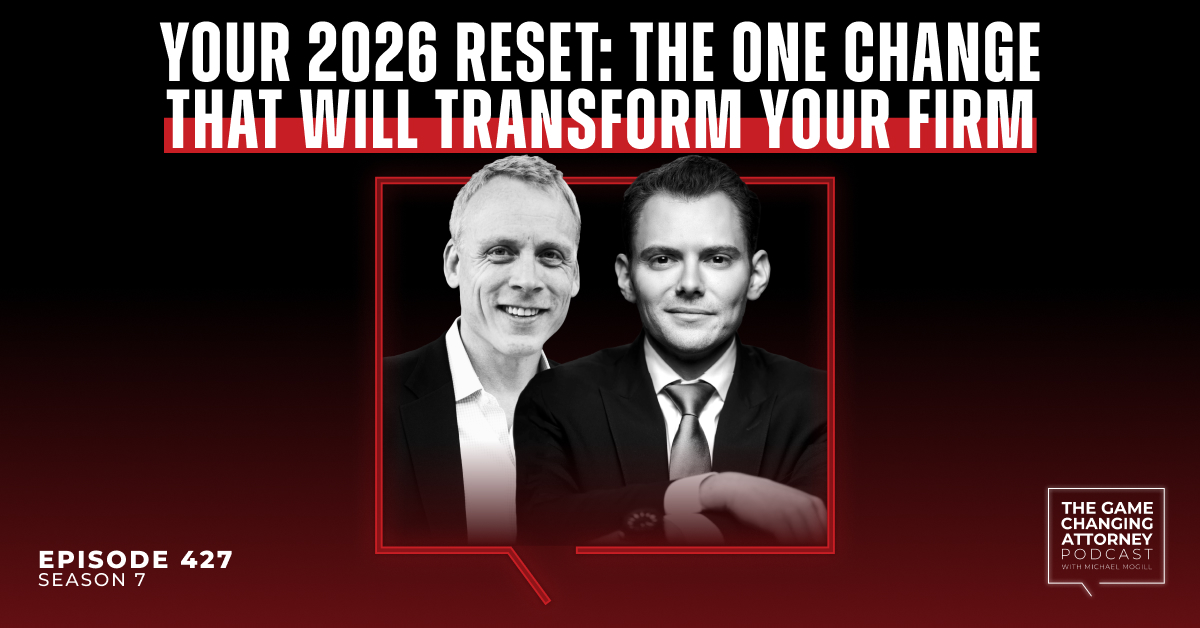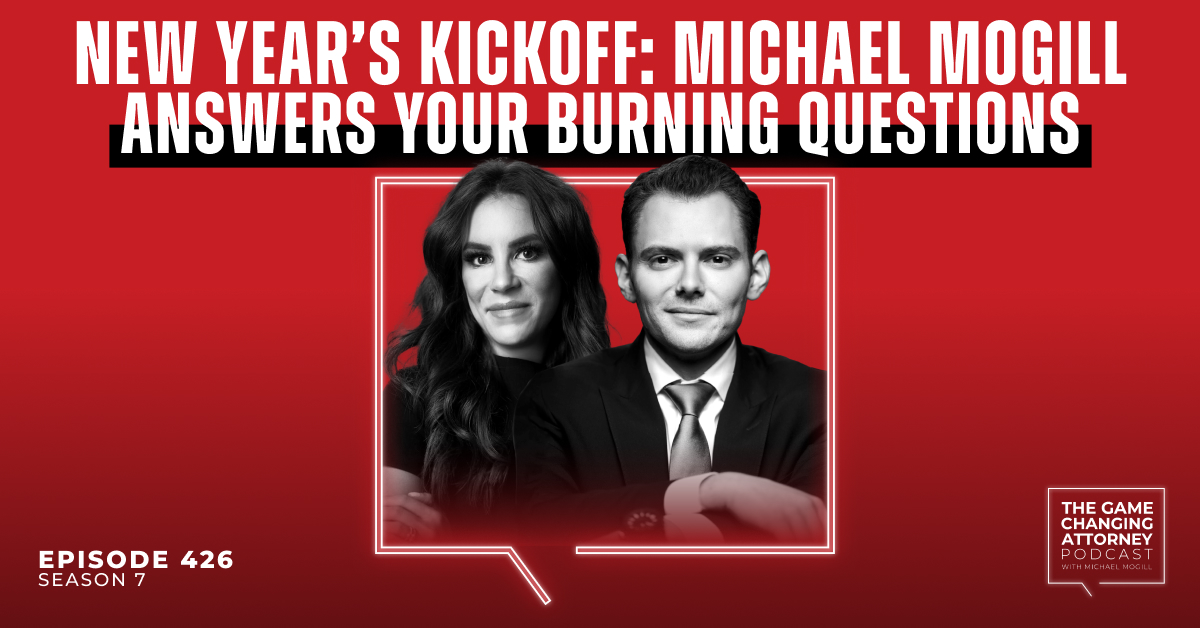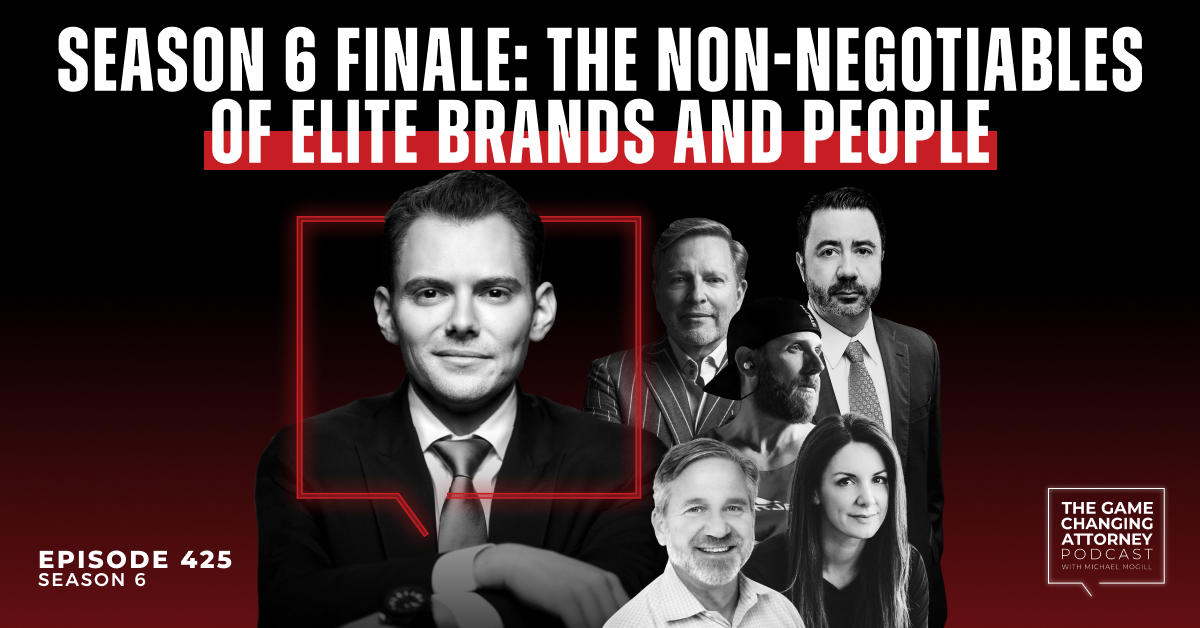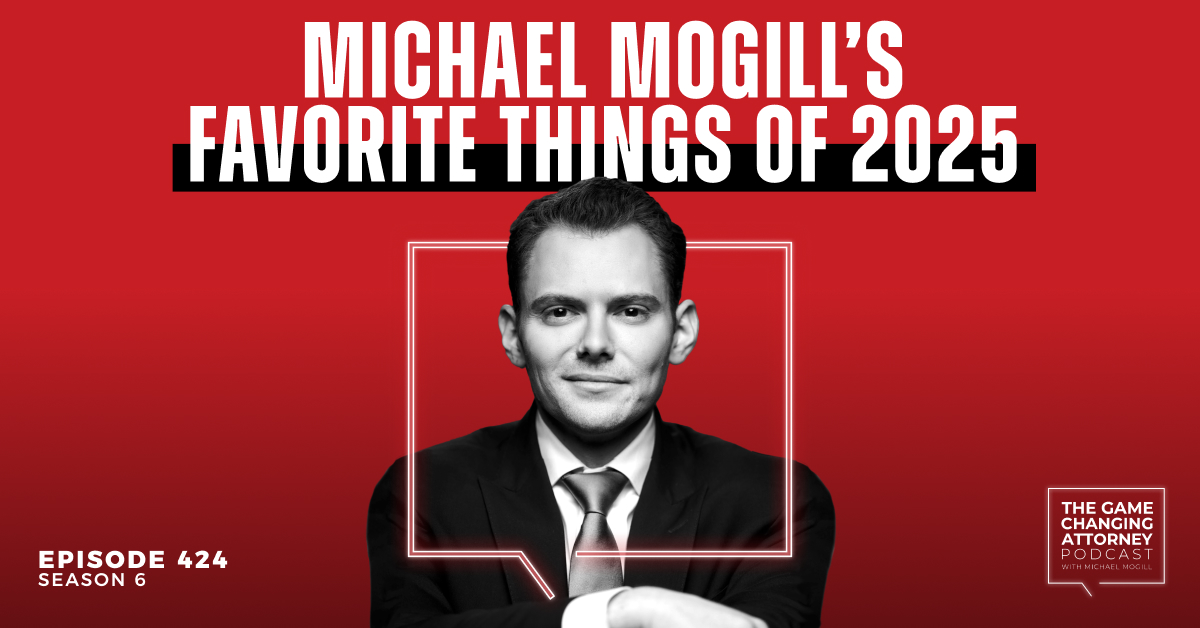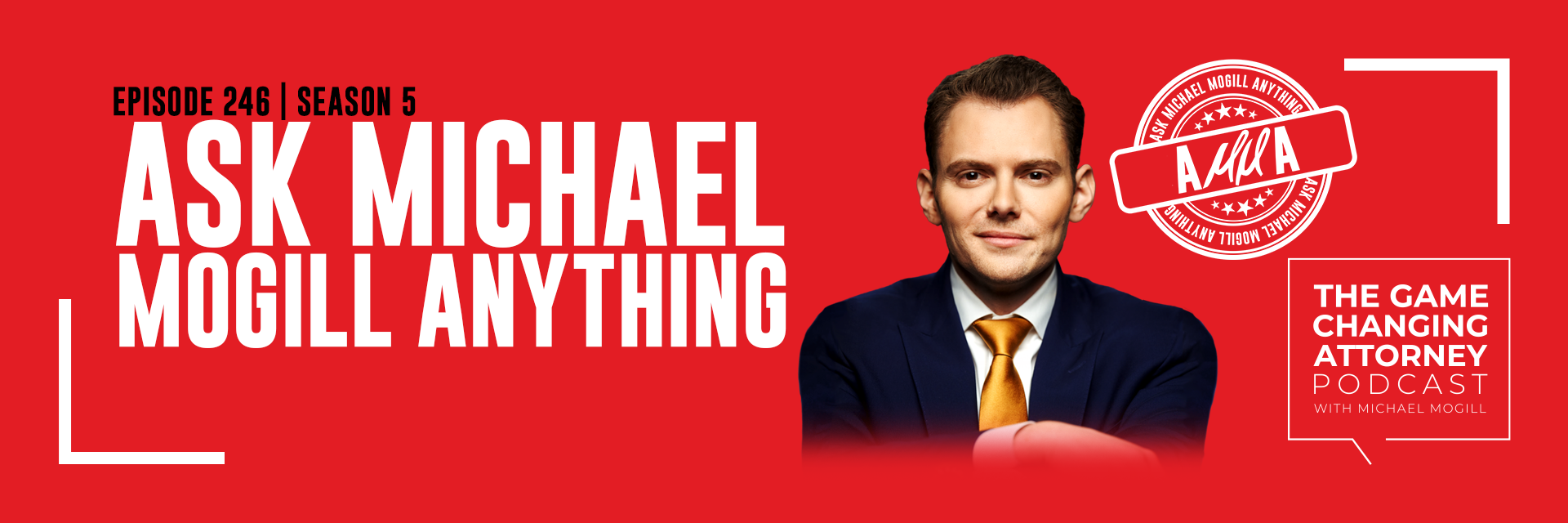
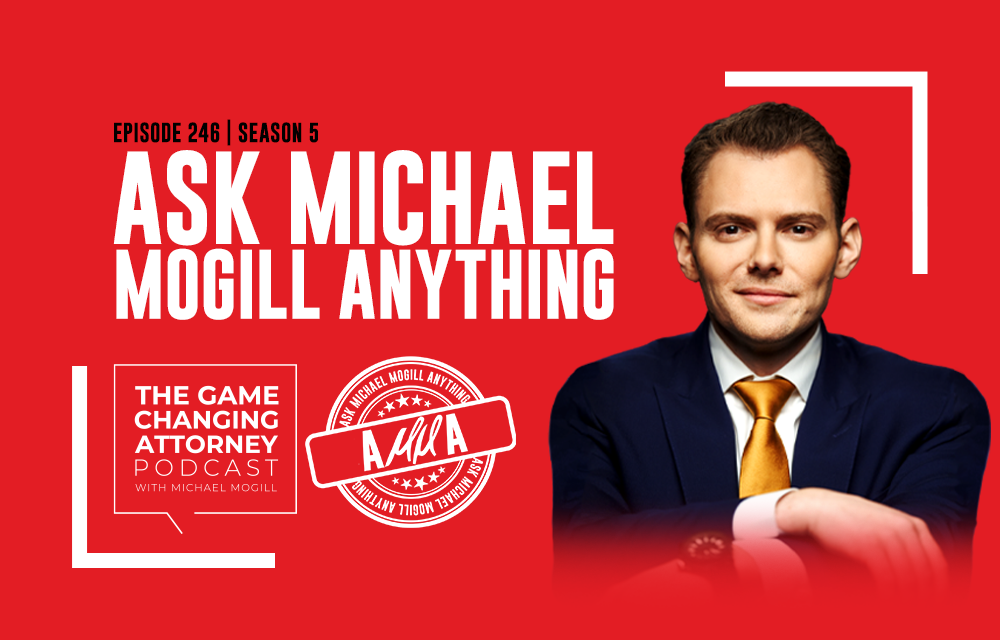
Episode 246 — AMMA — From Burnout to Breakthrough: The Key Differences Between Winners and Losers
Ambition is common, but commitment is rare.
Many desire greatness, but few dedicate themselves to doing everything possible to achieve their objectives. What does it really take?
In this episode of The Game Changing Attorney Podcast, Crisp Founder & CEO Michael Mogill will teach you:
- The habits and behaviors that all high-performers emulate
- The difference between being busy and being productive
- How to cultivate more discipline and commitment to achieving what you set out to do
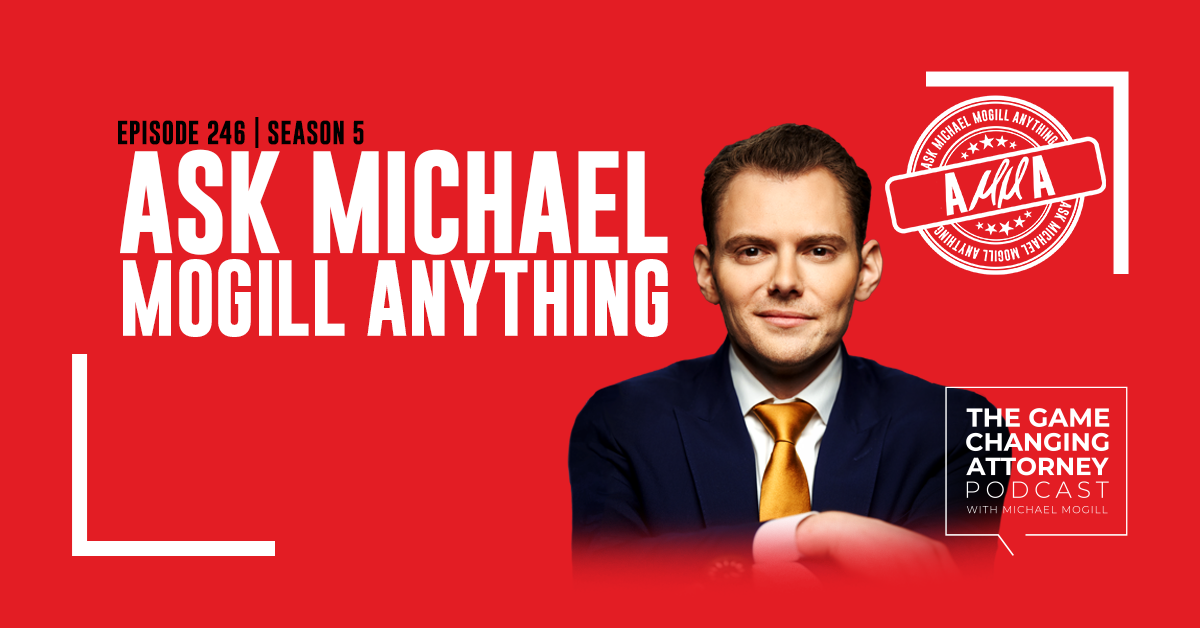
Listen & Subscribe
Show Notes:
Clarity is kindness. “We want everybody performing at a high level and at a high standard. So what do you do with the ones that are performing at a low level while there are others that are performing at a high level? The first thing you have to look at is what is within your control, because you don’t control someone’s effort, you don’t control someone’s attitude, but you do control how that person knows what they’re supposed to be doing. Do they have the proper training? Do they understand how to do their job? Do they understand how to be successful? Do they know what great looks like? Do they have clarity on what the expectations are in their role? There’s a reason why high performers are performing at a high level and low performers are performing at a low level. If you can standardize and confirm that everybody has been given the same training and development, everybody has the same resources and opportunities to be successful, then you have consistency across the board in how you’re developing your people. Provide clear metrics and clear expectations. If you’re providing someone with all of the things and they’re still not performing at the standard, then it’s time for a different kind of conversation.”
Working hard or hardly working? “I think hard work is non-negotiable when you’re an entrepreneur and you’re trying to build something, especially in the early stages of building a business. Working late, long hours? It’s hard to get around that. Anyone who tells you differently is trying to sell you something. That part is just what it takes. As the organization grows, you get support and can increase your capacity when you have different people that you can lean on and delegate to. Those long hours shouldn’t last forever, but if you find yourself working late into the night, checking off those extra items off your to-do list, it’s important to differentiate between simply being busy or being productive. I’ve seen a lot of leaders now who associate their identity with checking things off a to-do list. To-do lists are things like email. I know a lot of leaders and a lot of people where it’s important for them that by the end of every day, they’ve got to be at inbox zero, which means that they clear out and respond to every email. However, if you respond to 100 emails and you clear out your inbox, what do you think is going to happen an hour later? You respond to 100 emails, you’re going to get 100 back. So if that’s the goal, is that really what’s moving the needle in your organization? Email is like a to-do list that somebody creates for you. It’s not a to-do list you create for yourself. Associate and understand what it is that you’re doing and what it is that’s actually moving the needle in your law firm. Being busy is not the same thing as being productive.”
Less is more. “Every single month, I’ve got my top three items that need to get done that month, and every single week, I sit down with my executive assistant and we lay out the top three items that need to get done that week. Then, every single day, at the end of each day, I lay out the top three items that need to get done the following day. That way, when I go into a day, I can look at it and say, ‘If I get these three things done and nothing else, this is what’s going to move the needle in the organization.’ It keeps me from focusing on a lot of bullshit, because if you don’t have any focus or direction, then you’re going to just continue to pile up things to do. There’s a never-ending list of things you could do. I hear people say, ‘Today I checked off 50 items, and tomorrow I’m going to check off 60 items.’ Those people stay very, very busy — but they also stay very, very broke. They can’t understand why because they believe that just because they’re working hard they should be rewarded for hard work. The truth is, you’re not rewarded for working hard. You’re rewarded for driving critical results. You’re not living in the time and effort economy. You’re living in the results economy, so if someone can do what you just did in 10 hours and they can do it in one hour, they’re worth more.”
How bad do you want it? “Let’s say your current practice area faces legislative restrictions or caps the fees at an amount that just does not allow you to be able to grow your business or be able to make any sort of profit at scale. If you were thinking about adding a new practice area before, you definitely will now. You’re forced into survival mode — no procrastination, no hesitation, no issues with commitment. But if it’s the kind of thing where the upside is like, ‘We’re going to make a little bit more money,’ well, maybe you’re fat and happy and you’re already making money that you want right now. So what does more money get you? There’s not enough of a transformational kind of purpose there. However, if adding in that practice area would allow you to take care of your family and support everyone around you and help you be able to empower your team and be able to expand your office and be able to achieve this vision that you’ve set of being able to serve X number of people in your community and in multiple communities, now we’re talking. Now you’re like, ‘Alright, now we’re going to make it happen.’”
Make it count. “Maybe your firm is making $10 million and you have an opportunity to make $12 million, and you’re like, ‘Who gives a shit? What’s the difference? Maybe we’ll buy some nicer shoes or something.’ But if there’s an opportunity to ensure that the firm is going to be competitive for years into the future, to double the revenue and hire additional attorneys, additional support staff, invest in your marketing, etc., now that becomes a little bit worthwhile. You have to make sure that you evaluate things by asking, ‘Is this a should, or is it a must?’ The ‘must’ you’ll be committed to, but you have to make sure you have a clear reason for why you’re doing something. If it’s just like, ‘Oh yeah, it’d be nice’ — it’s like someone saying, ‘Yeah, we’ll grow by 10%’ — ask yourself if that’s meaningful for you. If you don’t really give a shit, it’s probably not gonna happen. It’s human nature.”
RESOURCES & REFERENCES
Chris Voss
Huberman Lab Podcast
David Goggins
The Joe Rogan Experience Podcast
Parkinson’s Law
Crisp Coach
Connect with Michael
- Text directly at 404-531-7691
